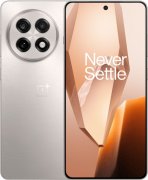- Home
- Transportation
- Transportation News
- Autonomous Cars Head for the Big Apple
Autonomous Cars Head for the Big Apple

Autonomous vehicles are already navigating the verdant hills of Pittsburgh and the pitched avenues of San Francisco. They may soon be tested by the chaos of Manhattan, where pedestrians, taxis, buses and bikes embark daily on an eternal quest to avoid impact.
Cruise Automation, a San Francisco-based self-driving software company owned by General Motors Co., aims to begin testing in New York City early next year. GM and Cruise are applying to operate in New York under a new pilot program announced Tuesday by New York Gov. Andrew Cuomo.
If approved, the tests will mark the first time a fully self-driving vehicle will be allowed to operate in New York state, Cuomo said in a statement. Volkswagen AG's Audi brand and GMs's Cadillac also have demonstrated semi-autonomous technology in Albany and New York City, but those systems weren't as advanced as the one developed by Cruise, according to a spokeswoman for New York's Department of Motor Vehicles.
The test vehicles will be electric Chevrolet Bolt cars equipped with cameras, radar, sensors and Cruise's software. GM and Cruise currently have a registered fleet of 100 autonomous Bolts, according to GM spokesman Patrick Sullivan. They're already operating in San Francisco, Phoenix and the Detroit area.
In New York, a small fleet of cars will operate in a 5-square-mile area of lower Manhattan. They will always have an engineer behind the wheel and an observer in the front passenger seat. Sullivan said testing will start with a small fleet that will grow incrementally to ensure safety and legal compliance.
"Bringing this lifesaving technology to New Yorkers safely and quickly is our number one priority," Sullivan said.
Cruise CEO Kyle Vogt says the densely populated city of more than 8 million people will give the company more unusual situations to test software and accelerate the development of the technology.
In a blog post earlier this month, Vogt said every minute of testing in a complicated urban environment like San Francisco is the equivalent of an hour of testing in suburbs. For example, he said, test cars in San Francisco encountered 270 emergency vehicles every 1,000 miles; in the Phoenix suburbs, they only encountered six.
"Testing in the hardest places first means we'll get to scale faster than starting with the easier ones," Vogt wrote.
Cruise also plans to set up an office in New York as part of its testing.
Vogt hasn't said when Cruise and GM plan to expand beyond testing and actually sell autonomous vehicles. But rival companies have said they could be on the road in about four years.
New York is a relative latecomer to autonomous vehicle testing. Boston-based startup nuTonomy began testing autonomous taxis in Singapore last year and is now testing them in Boston. Uber and Volvo began testing self-driving vehicles in Pittsburgh last fall. Forty-two companies were authorized to test autonomous vehicles on public roads in California as of September. Las Vegas has tested an autonomous shuttle.
Manhattan is easier for autonomous vehicles to navigate than Boston or Los Angeles because it's laid out in a grid and cars generally go at low speeds, said Art Wheaton, an auto industry expert and director of Western New York Labor and Environmental Programs for the Worker Institute at Cornell University. But it's harder to navigate because of the volume of traffic.
"If you can handle the pedestrian and bicycle and vehicle traffic in an area as congested as New York City, that's a pretty big test," Wheaton said.
Wheaton also said New York is the kind of place that could see the first applications of autonomous shuttles or shared vehicle fleets because of its dense population. If a delivery company or a taxi service has a fleet of 50 or 100 autonomous vehicles that need constant service, maintenance and parking, the cars need to get enough use to make that economically viable.
For the latest tech news and reviews, follow Gadgets 360 on X, Facebook, WhatsApp, Threads and Google News. For the latest videos on gadgets and tech, subscribe to our YouTube channel. If you want to know everything about top influencers, follow our in-house Who'sThat360 on Instagram and YouTube.
- Samsung Galaxy Unpacked 2025
- ChatGPT
- Redmi Note 14 Pro+
- iPhone 16
- Apple Vision Pro
- Oneplus 12
- OnePlus Nord CE 3 Lite 5G
- iPhone 13
- Xiaomi 14 Pro
- Oppo Find N3
- Tecno Spark Go (2023)
- Realme V30
- Best Phones Under 25000
- Samsung Galaxy S24 Series
- Cryptocurrency
- iQoo 12
- Samsung Galaxy S24 Ultra
- Giottus
- Samsung Galaxy Z Flip 5
- Apple 'Scary Fast'
- Housefull 5
- GoPro Hero 12 Black Review
- Invincible Season 2
- JioGlass
- HD Ready TV
- Laptop Under 50000
- Smartwatch Under 10000
- Latest Mobile Phones
- Compare Phones
- Honor 400 Lite
- Honor Play 60m
- Honor Play 60
- Poco C71
- Lava Bold 5G
- Huawei Pura X
- Motorola Edge 60 Fusion
- Redmi A5
- Acer TravelLite (2025)
- Asus Zenbook 14 (2025)
- Samsung Galaxy Tab S10 FE+
- Samsung Galaxy Tab S10 FE
- Garmin Instinct 3
- Garmin Instinct E
- Haier M80F Mini LED 4K
- Haier M95E
- Nintendo Switch 2
- Sony PlayStation 5 Pro
- LG 1.5 Ton 5 Star Inverter Window AC (UW-Q18WUZA)
- LG 1.5 Ton 3 Star Inverter Split AC (US-Q18JNXE)












